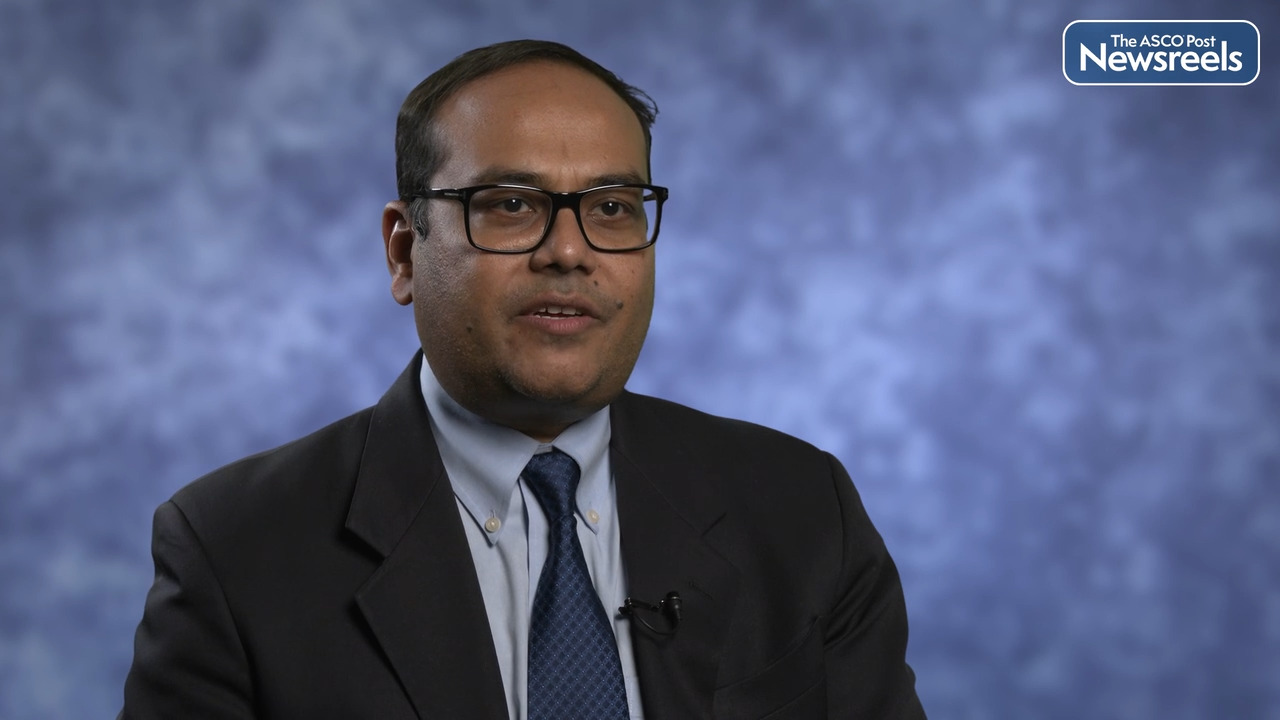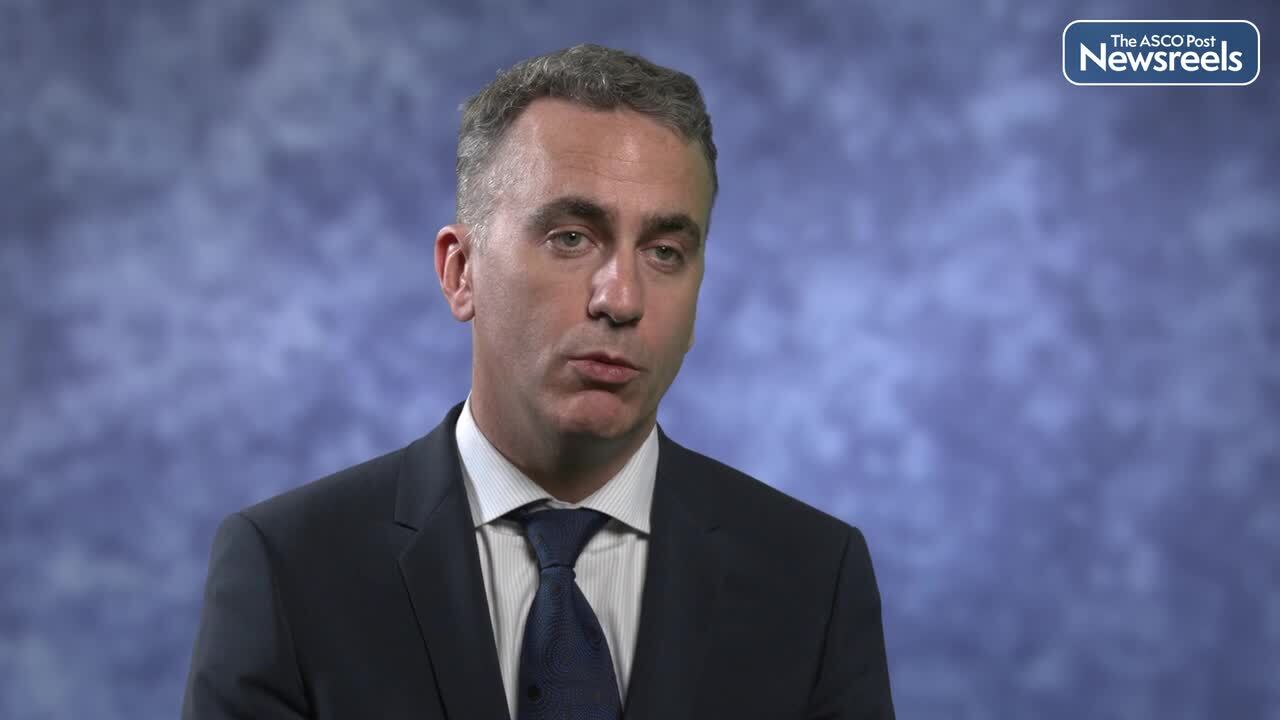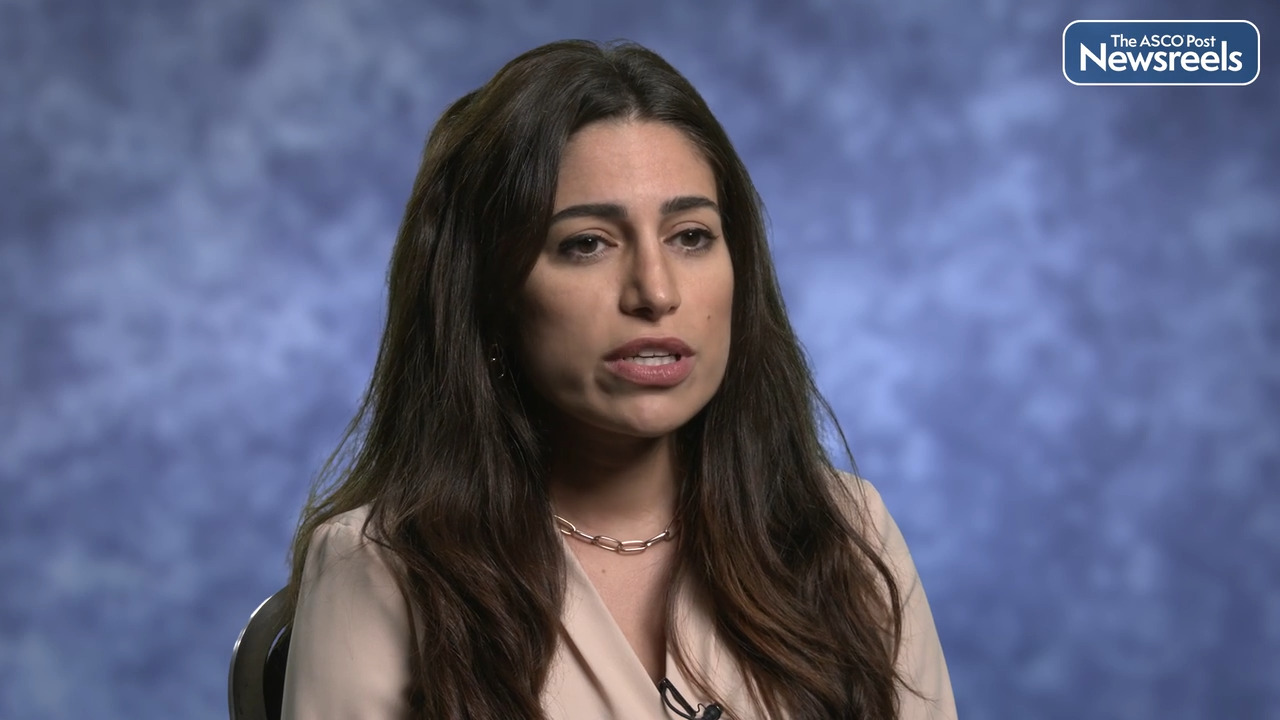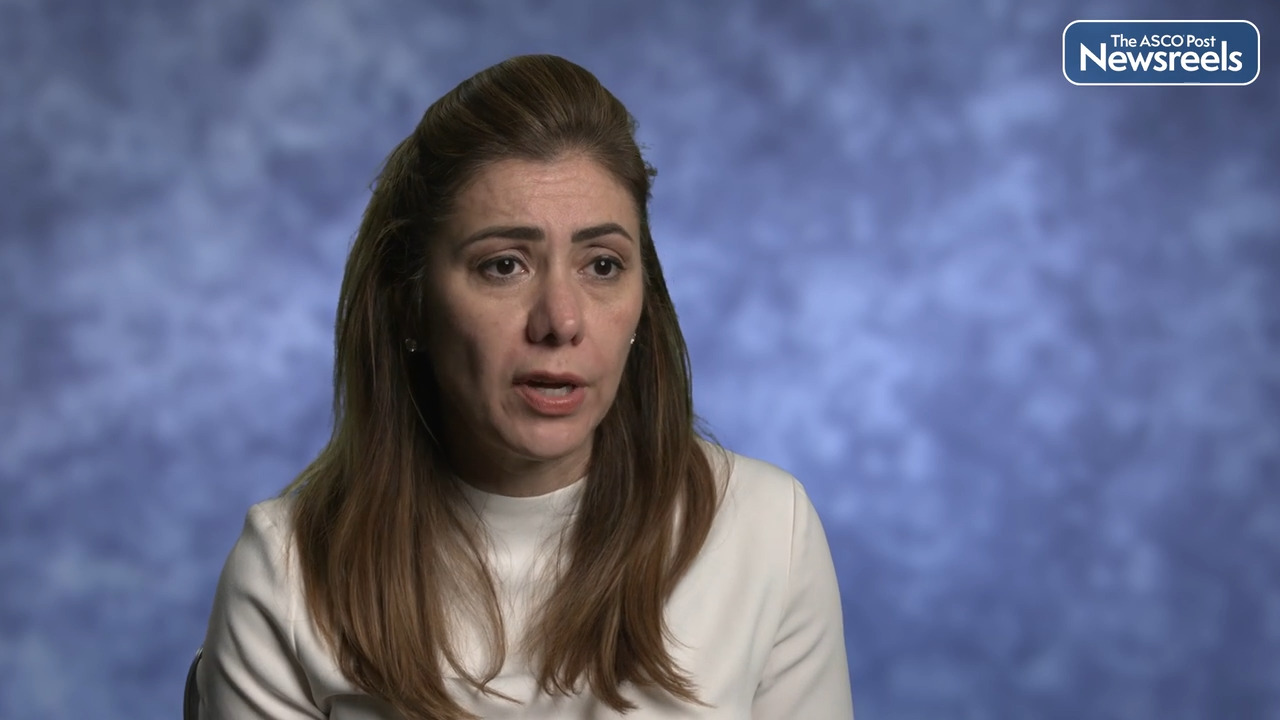Transcript
Disclaimer: This video transcript has not been proofread or edited and may contain errors.
The combination of a CDK4/6 inhibitor and endocrine therapy has been a standard-of-care in the management of metastatic hormone receptor positive, HER2 negative breast cancer. Patients can do very well, but eventually resistance develops and progression. And then the question is, what do we do next? A big question has been, is it appropriate to continue CDK4/6 inhibition with a change in endocrine therapy or to stop CDK4/6 inhibition? The PACE Trial, which is a randomized phase 2 trial, was designed to address this question. Eligible patients for the PACE Trial had metastatic hormone receptor-positive/HER2-negative breast cancer, and had received a CDK4/6 inhibitor and endocrine therapy containing regimen, for at least six months of disease stability indicating endocrine resistance. Patients could have up to two lines of endocrine therapy, no prior fulvestrant and up to one prior line of chemotherapy.
Patients were randomized into one of three arms, fulvestrant alone, which we can think of as a control arm, fulvestrant with palbociclib, so continuation of a CDK4/6 inhibitor or a third arm of fulvestrant palbociclib and the PDL1 inhibitor, avelumab, a triplet combination which is based off of preclinical data. A total of 220 patients in the United States enrolled on the PACE Trial and results from this study which have been presented, demonstrated to us that continuation of the CDK4/6 inhibitor using palbociclib in combination with a change to fulvestrant, did not prolong progression-free survival compared to staying on fulvestrant alone. The median progression-free survival was 4.6 months with fulvestrant and palbociclib, and 4.8 months with fulvestrant alone. Interestingly, the triplet arm of fulvestrant, palbociclib and avelumab, had practically doubled progression-free survival at 8.1 months. Overall, this was a well-tolerated regimen. There were no unexpected toxicities and importantly in that triplet immunotherapy arm, there were no excessive immune related toxicities.
I think we can learn several things from this study. First of all, what we learned is that four patients who have been receiving a CDK4/6 inhibitor, which in this study was mostly palbociclib, if their disease progresses, continuing palbociclib beyond progression, was not shown to be helpful in the PACE Study, so we want to look into other options. But there are a lot of other options that are coming out for these patients, a wealth of options. This includes perhaps other CDK4/6 inhibitors such as ribociclib. There's palpolicib for patients with PIK3CA mutations. There's everolimus. Recently we've heard exciting data with capivasertib. We can offer oral surds, which are in development. There's PARP inhibitors for patients with BRCA mutations, so lots of different choices that are available for our patients and we look forward to more data that will help clarify what's the best option for patients in this situation.





